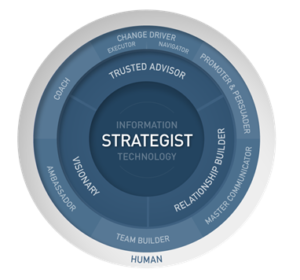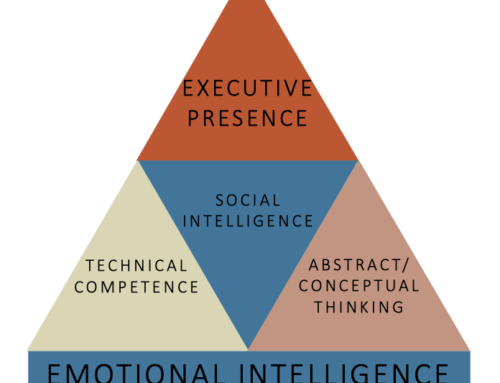 If you keep up on the latest technology news related to universities and colleges or you’ve attended EDUCAUSE events in the last few years then you know that in the next 3- 5 years, 50% or more CIOs will be retiring. For aspiring technology leaders – this is a favorable time to contemplate how to seize this opportunity and reflect on your path to a leadership role. What are the considerations for a sitting Deputy CIO (DCIO), IT Director, or Senior Manager? Below are three inputs to ponder to develop a career strategy:
If you keep up on the latest technology news related to universities and colleges or you’ve attended EDUCAUSE events in the last few years then you know that in the next 3- 5 years, 50% or more CIOs will be retiring. For aspiring technology leaders – this is a favorable time to contemplate how to seize this opportunity and reflect on your path to a leadership role. What are the considerations for a sitting Deputy CIO (DCIO), IT Director, or Senior Manager? Below are three inputs to ponder to develop a career strategy:
1. IT Career Path: Mind the Gap.
If you’re employed in a university or college IT organization you’ve likely garnered experience in some or all of these areas: infrastructure, enterprise technology, networking, help desk (student, faculty and staff support), IT security, etc. Important questions to consider:
- What experience do you have in being a technology ambassador across campus?
- How have you demonstrated the value of technology in solving complex issues across campus?
- What experience have you built being a trusted advisor to faculty, staff, and senior campus leadership?
- How do you contribute to the broader “IT in higher education” discussion with IT peers at other institutions and professional associations?
- If there are gaps, what opportunities can you take advantage of or create to be on the right career trajectory?
2. Aptitude for IT Leadership in Higher Education.
EDUCAUSE has developed a key model for IT leadership in higher education. The model illustrates the role IT leaders currently play and key considerations for the future.

Fig. 1: A Model for IT Leadership. Technology in Higher Education: Defining the Strategic Leader. Research report. Jisc and EDUCAUSE, March 2015.
Read more about the EDUCAUSE Model for IT Leadership Here
A great first step is to map your own portfolio of experience to the leadership attributes depicted in this model.
3. Emotional Intelligence.
This is an area that is somewhat intangible. At the most definitive level, emotional intelligence is how well you use emotional information to guide thinking and behavior. Emotional intelligence affects how we express ourselves, navigate social complexities, and make decisions- often in stressful situations. If you’ve had success as a DCIO, IT Director or Senior Manager you may have solid if not expert technical skills. In my work with IT leaders and aspiring leaders I find the most significant gap between being an IT leader and an IT Director (or Manager) is emotional intelligence. At the very foundation of successful leadership is the capacity to inhabit executive presence. Emotional Intelligence is the difference between strategic leadership and tactical management.




